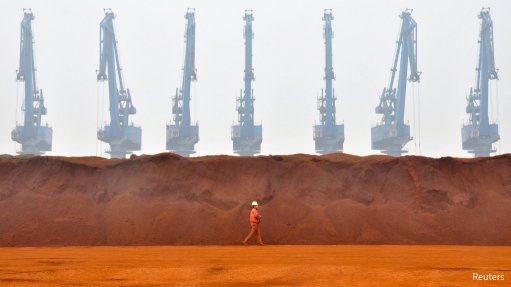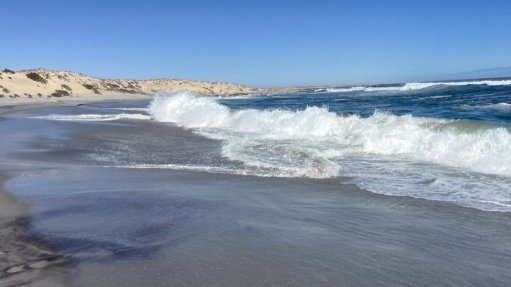Australian minerals critical to net zero - King
PERTH (miningweekly.com) – Australia’s critical minerals resource could be a lynchpin for global net zero ambitions.
Federal Resources Minister Madeleine King said this week that in order to reach net zero emissions, the world would need to increase mining activities, not reduce it.
“This is a significant opportunity for Australia – for our resources sector and the workforce it supports,” she said.
“[Critical minerals] are key components for most of the technologies that are being embraced globally in the quest for a clean energy future: electric vehicles, batteries, solar cells and energy efficient technologies. And rare earths are also an essential input to the advanced manufacturing, aerospace and defence industries of our allies and partners.
“So their supply is as much a national security issue as one of energy and economic security. Indeed it could be said Australia’s critical minerals are at the centre of an important moment in history which could dictate the shape of the world that we will live in for the next century.
“The importance of ensuring resilient and diverse supplies of these valuable materials will heighten as demand for these products continues to grow,” King said.
While China was acknowledged to have the largest rare earth reserves globally, and the highest production of rare earth concentrates, controlling as much as 85% to 90% of global production at various value-added stages of the supply chain, King said that diversifying the supply chain concentration would be imperative to counteract significant vulnerabilities that were made clear in recent years.
“We have seen first-hand how the impacts of natural disasters; pandemics; and geopolitical events can rock fragile markets – from titanium, to gas and coal, to fresh fruit and vegetables.
“Diversity of supply is an intrinsic good in these markets. Establishing new sources of supply and demand, diversifying supply chains and bringing in new entrants provides a broader range of supply options.
“Diversifying supply chains in rare earths and other critical minerals is about making these markets stronger, more efficient, more resilient and more transparent. It is about taking practical steps to address the inherent vulnerabilities of concentrated supply chains.
“Fortunately, Australia can have an outsized impact in helping diversify rare earths supply chains. And we can do this to our benefit, and to the benefit of others around the world,” King said.
“Australia is renowned for maintaining the highest environmental, social and governance standards, which supports our efforts to attract foreign investment. Indeed, there is barely a month that passes in which I am not approached by representatives of other countries seeking access to Australian critical minerals.
“Australia is already the fourth largest producer of rare earth concentrate and we have the potential for significant growth with high-quality deposits of both light and heavy rare earths,” she added.
King said that Australia could play a role in diversifying supply by not only increasing production of rare earths, but also by increasing our involvement in downstream processing.
“But we must be realistic. This will require a sustained effort over the coming decades, underpinned by enduring collaboration with international partners and investors. There is no quick fix or easy answer.
“In the lengthy and complex rare earth supply chain, Australia is currently only involved in mining and beneficiation.
“We are moving to capture the next stage – cracking and leaching – onshore through projects like Lynas’ Kalgoorlie project, and Hastings’ Yangibana project. The Australian government, and the Australian industry, is determined to go further.
“Consistent with the government’s manufacturing policy and ambitions, including our battery strategy, we want more of our own rare earths to be processed here. We want to capture more of the regional economic benefits of processing here. We want to develop new capabilities and industries through growing our manufacturing sector here.
“And most importantly, we want to help ensure reliable and affordable supplies of these materials to underpin the global net zero transition by diversifying supply chains,” she said.
Article Enquiry
Email Article
Save Article
Feedback
To advertise email advertising@creamermedia.co.za or click here
Press Office
Announcements
What's On
Subscribe to improve your user experience...
Option 1 (equivalent of R125 a month):
Receive a weekly copy of Creamer Media's Engineering News & Mining Weekly magazine
(print copy for those in South Africa and e-magazine for those outside of South Africa)
Receive daily email newsletters
Access to full search results
Access archive of magazine back copies
Access to Projects in Progress
Access to ONE Research Report of your choice in PDF format
Option 2 (equivalent of R375 a month):
All benefits from Option 1
PLUS
Access to Creamer Media's Research Channel Africa for ALL Research Reports, in PDF format, on various industrial and mining sectors
including Electricity; Water; Energy Transition; Hydrogen; Roads, Rail and Ports; Coal; Gold; Platinum; Battery Metals; etc.
Already a subscriber?
Forgotten your password?
Receive weekly copy of Creamer Media's Engineering News & Mining Weekly magazine (print copy for those in South Africa and e-magazine for those outside of South Africa)
➕
Recieve daily email newsletters
➕
Access to full search results
➕
Access archive of magazine back copies
➕
Access to Projects in Progress
➕
Access to ONE Research Report of your choice in PDF format
RESEARCH CHANNEL AFRICA
R4500 (equivalent of R375 a month)
SUBSCRIBEAll benefits from Option 1
➕
Access to Creamer Media's Research Channel Africa for ALL Research Reports on various industrial and mining sectors, in PDF format, including on:
Electricity
➕
Water
➕
Energy Transition
➕
Hydrogen
➕
Roads, Rail and Ports
➕
Coal
➕
Gold
➕
Platinum
➕
Battery Metals
➕
etc.
Receive all benefits from Option 1 or Option 2 delivered to numerous people at your company
➕
Multiple User names and Passwords for simultaneous log-ins
➕
Intranet integration access to all in your organisation


















